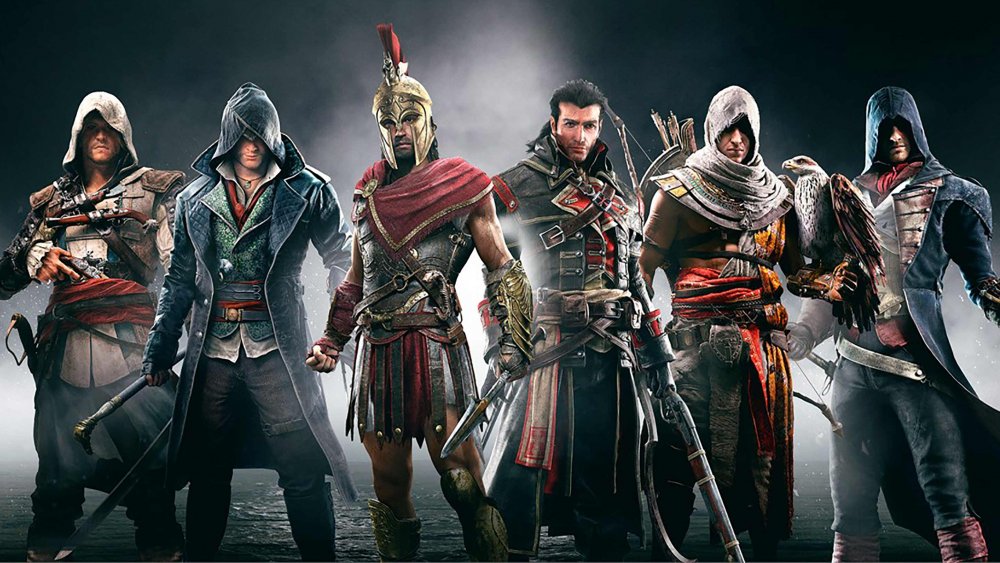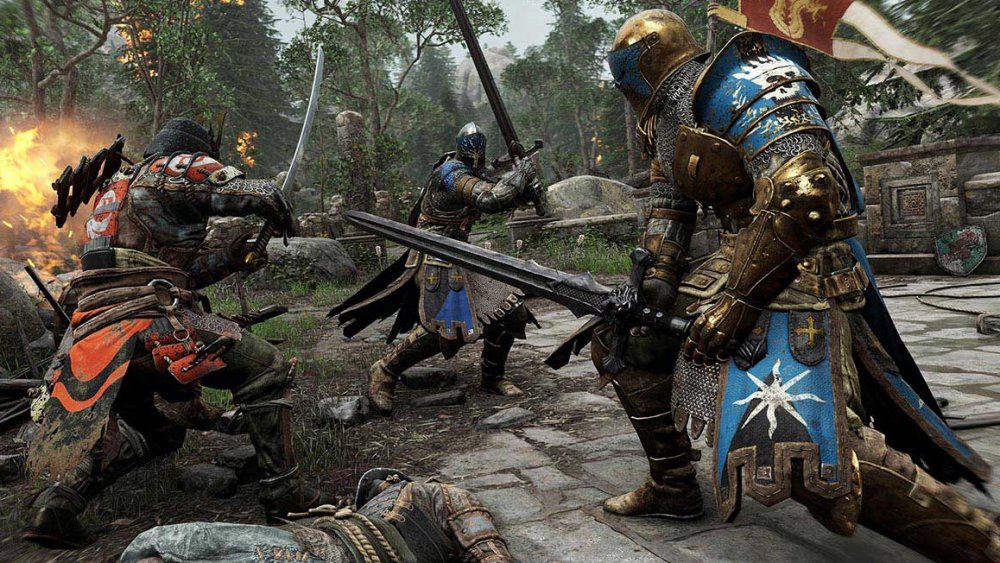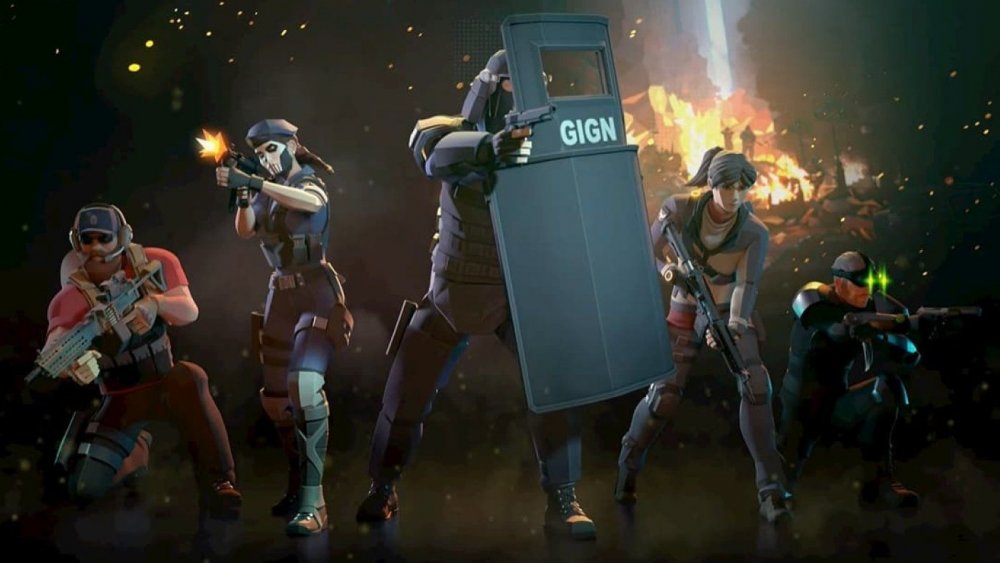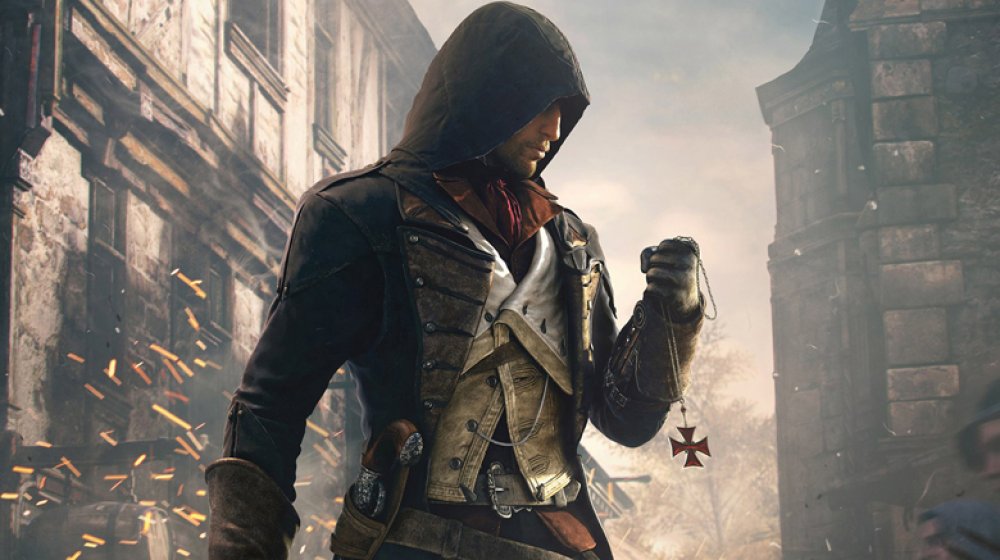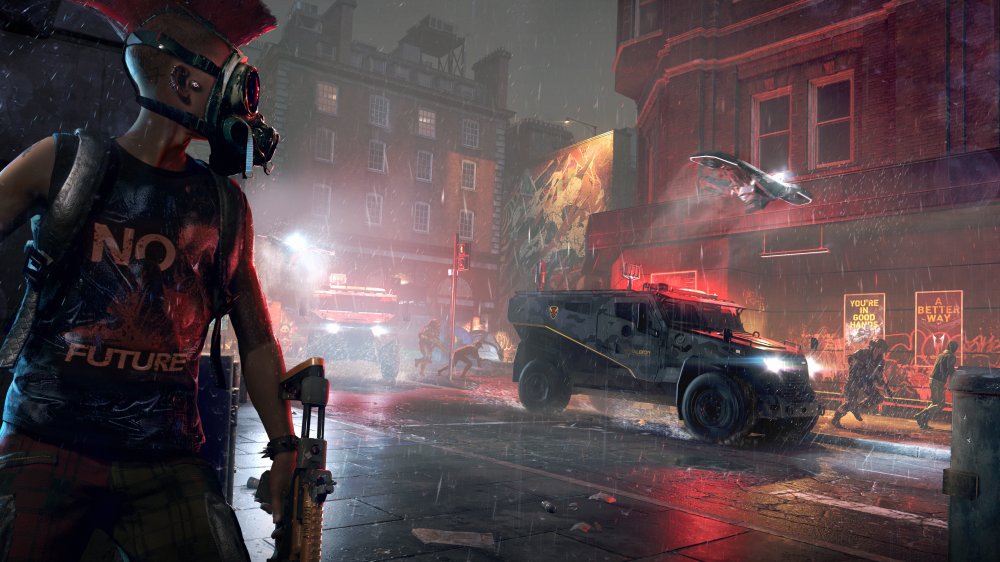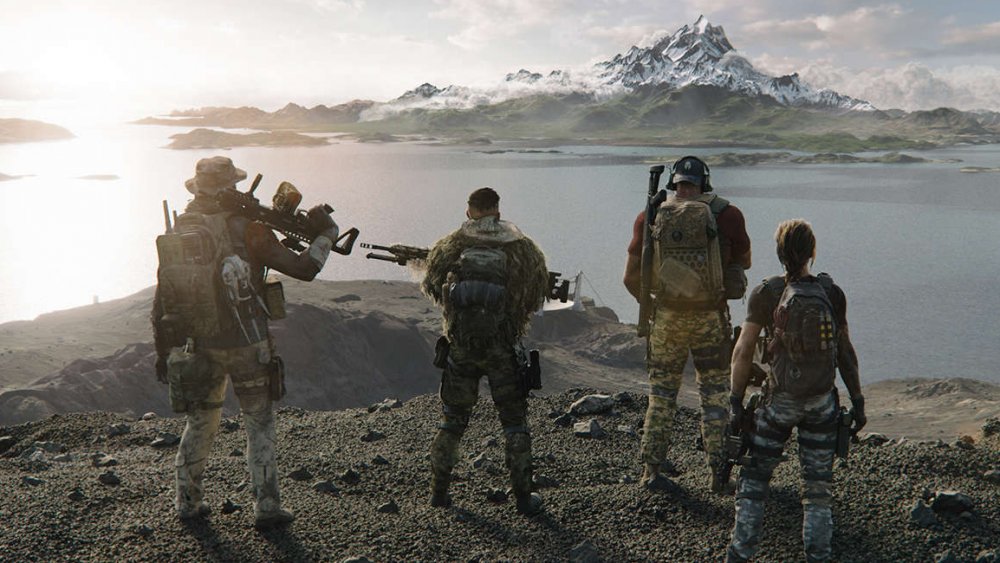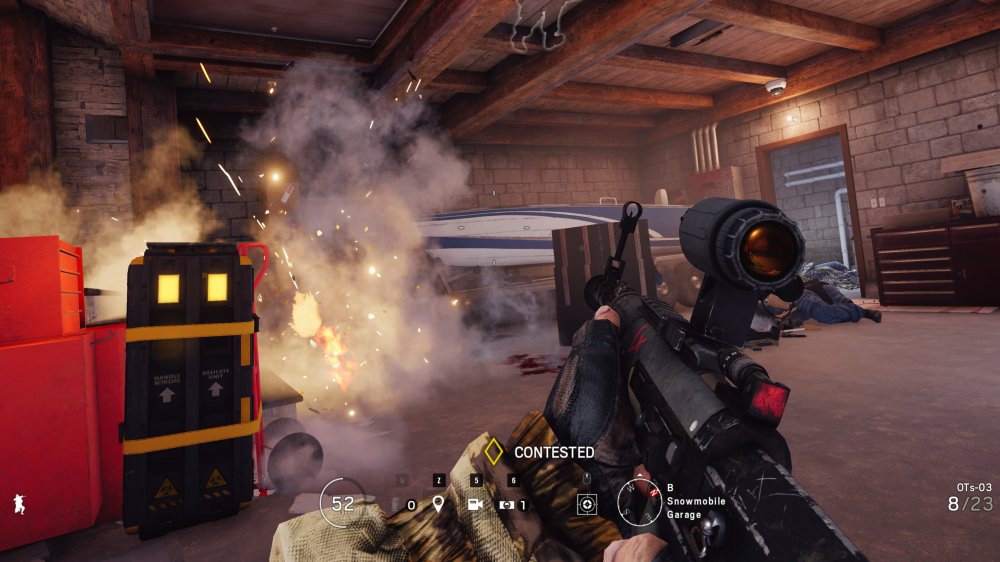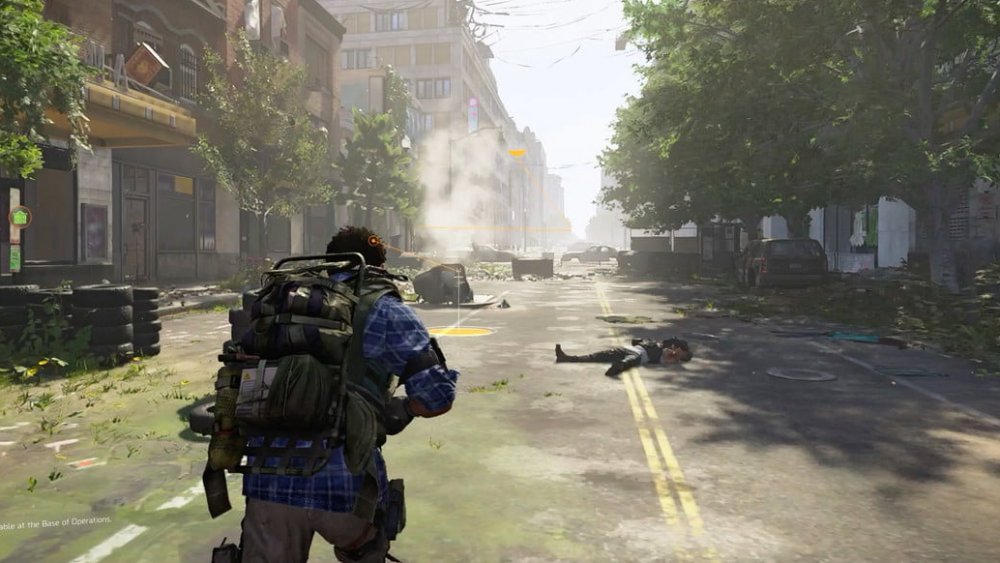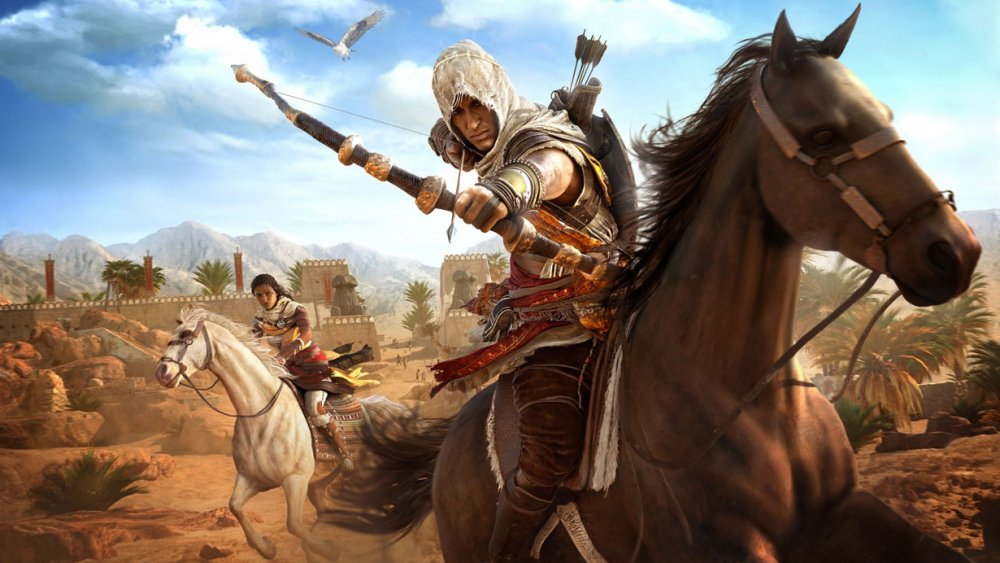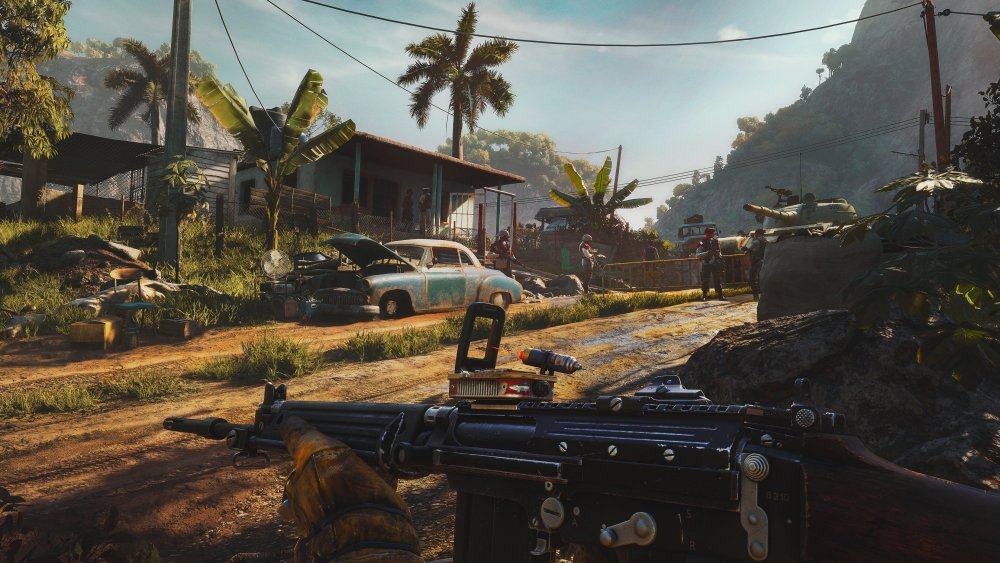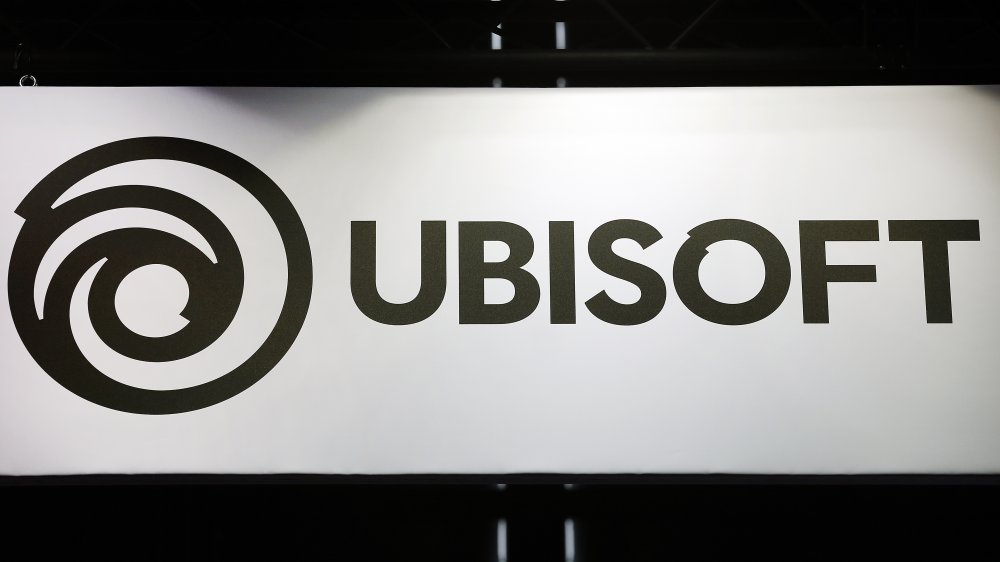The Shady Side Of Ubisoft
Over the last few decades, Ubisoft has grown from a small studio in France run by five brothers to one of the world's largest game publishers. The company scored an early success with Rayman, one of the best-selling games on the original PlayStation in the UK, and today, it has powerhouse franchises such as Assassin's Creed and Ghost Recon.
Ubisoft has become an international organization with offices in Europe, Asia, and North America. Their Canadian campus, Ubisoft Montreal, is the largest development studio in the world. For better or worse, Ubisoft has made its mark on the gaming community and helped craft the experiences gamers expect today.
However, like any success story in the modern software world, Ubisoft made a few questionable choices on their way to the top. The company's aggressive push to become a dominant force in the market has upset its share of critics, gamers, and industry cohorts. Here is the shady side of Ubisoft.
Impossible unlocks
The business model of locking content behind either in-game purchases or long grinds has attracted negative attention across the gaming industry. Ubisoft is no stranger to this tactic and came under fire when one Reddit user discovered that unlocking every cosmetic in For Honor would take a casual player two and a half years — or $800.
The original Reddit post did elaborate math to deduce that unlocking all unlocks for the 12 characters in For Honor would cost about one million steel, the in-game currency. From there, the post looked at the pricing of steel from the game's store. A $100 steel pack netted the purchaser about 150,000 steel. To get enough steel to unlock everything, you'd need to buy eight steel packs, on top of the price of the game. The Redditor estimated that an average player earned about 1,200 steel per day to figure out the time. That meant it would take 915 days to earn the steel in-game, or about two and a half years.
Game director Damien Kieken responded to the outrageous cost of completing the unlocks, stating that it was never the intention for players to unlock everything. However, many in the community were still upset.
Misuse of Black Lives Matter imagery
While Ubisoft has a diverse portfolio of intellectual properties featuring characters worldwide, it has a reputation for publishing insensitive and tone-deaf material. In 2020, amidst a worldwide call for racial equality, the company incited controversy for misusing racial symbols.
The backlash began after promotional material for Tom Clancy's Elite Squad appeared online. The game, a free-to-play online military RPG for mobile devices, pitted players against Umbra, a terrorist organization. The game's trailer used the raised fist symbol synonymous with the Black Lives Matter movement as the fictional Umbra's emblem. The community's reaction was swift, and Ubisoft apologized on Twitter, admitting that the symbol's inclusion was "insensitive and harmful." Ubisoft removed the content from all versions of the game two days later.
This wasn't the first time that Ubisoft faced accusations of racial insensitivity, however. When the company first released promotional art for Far Cry 4, the art depicted a light-skinned, blonde-haired man in a throne with his hand on a kneeling character with an Asian appearance. While the developers released more information about the ethnicity of the featured individuals and their relationships, it still shocked consumers.
Assassin's Creed: Unity disaster
One of Ubisoft's most visible missteps in recent years was the disastrous launch of Assassin's Creed: Unity. The eighth release in the flagship franchise followed Assassin's Creed: Black Flag, which had reinvigorated the series, and arrived with significant problems that Ubisoft seemed to know about well in advance.
Bugs and glitches plagued the game at its release, including an unsettling missing face error and rampant collision detection problems. Unity also shipped without promised female characters available for co-op, with creative director Alex Amancio stating that including them was simply too much work.
The community might have forgiven all of this if it hadn't been apparent that Ubisoft was well-aware of the game's shortcomings. When the company sent out copies of Assassin's Creed: Unity to the press, it came with a review embargo condition. That embargo lasted until 12 hours after the game became available in stores and on Steam, giving the appearance that the company anticipated terrible reviews and wanted to keep gamers from seeing them.
The backlash to the launch was so intense that Ubisoft offered free content as an apology.
Yearly release schedules
In the 2010s, Ubisoft embraced a more aggressive release schedule for its biggest franchises that drew fire from fans accusing them of rushing unfinished games out the door.
Licensed sports games often receive annual editions, where a regular release schedule aligns with the realities of the advancing seasons. Alternatively, blockbuster franchises like Call of Duty have multiple iterations that allow for game release schedules to occur every year. However, Ubisoft cranked out one Assassin's Creed title after the other every year from 2009 until 2016. The publisher pursued an equally aggressive schedule for games with their Tom Clancy license, such as Ghost Recon and Rainbow Six, as well as the Far Cry games.
While this schedule put a lot of content in fans' hands, it can dilute the franchise. In fact, after Ubisoft took a year off from the Assassin's Creed franchise for the first time in seven years, the next title was praised as one of the series' best. Ubisoft has stated that they intend to back away from annual releases to pursue a games as a service strategy — although this approach has its share of detractors as well.
Misleading trailers
While there is no shortage of publishers releasing trailers that sell an idea of a game far from the final product, Ubisoft has received some sharp criticism for the practice. High-profile games such as Rainbow Six Siege and Tom Clancy's The Division received trailers that seemed to represent gameplay but did not. The biggest controversy, however, came after the release of Watch Dogs.
Watch Dogs was first announced in 2012 and accompanied by an E3 trailer showing next-generation lighting, weather effects, and animation. The game, advertised as coming to both PC and consoles, led PlayStation and Xbox owners to believe that they would play next-generation technology on current-generation systems. When the next trailer appeared in 2013, the visual quality of the game seemed drastically reduced. When questioned about it, Ubisoft admitted that the trailer, rendered on a high-end PC, showed graphics far beyond what customers would find on consoles — or most PCs.
The misleading E3 trailer led to a wave of anger from fans and prompted then-CEO Yves Guillemot to reevaluate their promotional material for future events.
Lack of server support
As Ubisoft transitions from an annual release model and focuses more on supporting online communities, some fans worry about the company's history with server support.
Rainbow Six Siege has been a cornerstone of Ubisoft's games as a service plan. The game's original launch was lackluster, but over time, the player base and online community grew to 55 million in 2019. However, when the game launched, its critical multiplayer component suffered from a lack of server support. The game launched without dedicated servers for some of its most popular modes, instead opting for peer-to-peer connections with player-hosted servers. Players also experienced frequent server outages that kept them from connecting to the game at all.
To respond to these issues, Ubisoft launched Operation: Health to improve server performance. Players of the game since its launch were confused as to why this hadn't been a priority since the beginning.
Visual downgrades
Like many of the shady industry practices seen in the video game industry, visual downgrades build up hype and anticipation for stunning game footage, only to deliver something far less impressive. There are many reasons why this happens, and while it does occur all over the industry, Ubisoft is one of the worst offenders.
Over the years, Ubisoft has produced gameplay demos that looked nothing like the shipped product for many titles. Rainbow Six Siege, Tom Clancy's The Division, Watch Dogs, and Far Cry 4 all received noticeable visual quality reductions from their E3 presentations to their release date.
Sometimes, according to a source within Ubisoft, this is a case of developers putting more effort into parts of the game they expect more players to see. Other times, according to the same source, it results from backdoor deals with publishers, which is why The Division received a downgrade on the PlayStation 4.
Invasive piracy protection
Software piracy has long been a significant issue for publishers eager to make returns on their big-budget titles. However, some companies, including Ubisoft, have resorted to draconian piracy prevention measures that have compromised customer privacy and access to their legally purchased games.
Some of the earliest problems with copy protection came to light in 2006, when the community criticized Ubisoft for using Starforce's controversial software. The company producing Starforce posted links to download competitor products illegally and was the target of a $5 million lawsuit alleging that the software introduced security vulnerabilities to consumers' hardware.
In 2010, Ubisoft began using DRM that required an active internet connection to play their games, regardless of the presence of online components. The always-on piracy protection also meant that if the internet connection dropped, the game would freeze, and progress would not save. This was the case until Ubisoft abandoned always-online DRM in 2012.
While Ubisoft appeared to learn from the backlash these decisions received, there have still been complaints of DRM software affecting gameplay. 2017's Assassin's Creed: Origins came with VMProtect, a protection method that scrambles code, which some gamers accused of overusing CPU resources and killing framerates.
Formula sharing and overuse between franchises
Ubisoft's strict annual release schedule and reuse of gameplay elements between franchises have led to a homogenization of some of their flagship titles. The phenomenon is most noticeable with its open-world games and has led some fans to say that "once you've played one Ubisoft game, you've played them all."
The gameplay of thematically different franchises such as Assassin's Creed, Far Cry, and Watch Dogs follows the Ubisoft formula. A game that follows the Ubisoft formula features an overwhelming amount of side content, RPG, or crafting progression and minimal story to push the player through its world.
While some of the early games that adhered to this formula drew praise, such as Far Cry 3 and Assassin's Creed: Black Flag, later games seemed repetitive and shallow. The formula has also spread to games produced by other companies, with Zelda: Breath of the Wild emerging as a recent example of how it can still produce great games.
Executive misconduct accusations
In the summer of 2020, Ubisoft's executive structure reeled after accusations of misconduct that led to the dismissal and resignation of several prominent executives. The company was at the receiving end of multiple anonymous allegations, most made online, regarding a culture of harassment and sexual misconduct in the workplace and at company events.
While Ubisoft has not made any public allegations against current or former staff members, some of the most powerful senior leaders departed the company. These included Canadian studios managing director Yannis Mallat, chief creative officer Serge Hascoët, once called the company's "most powerful creative force," and editorial vice president Maxime Béland. In addition, Ubisoft Montreal's creative director, Ashraf Ismail, was fired amid allegations of an extramarital affair. Ubisoft's vice president for editorial and creative services, Tommy Francois, was also fired.
These incidents prompted Ubisoft CEO Yves Guillemot to make public an open letter to Ubisoft staff pledging to improve human resources processes and revise the editorial department. Guillemot also promised in the letter to review company policies and strengthen diversity companywide.

